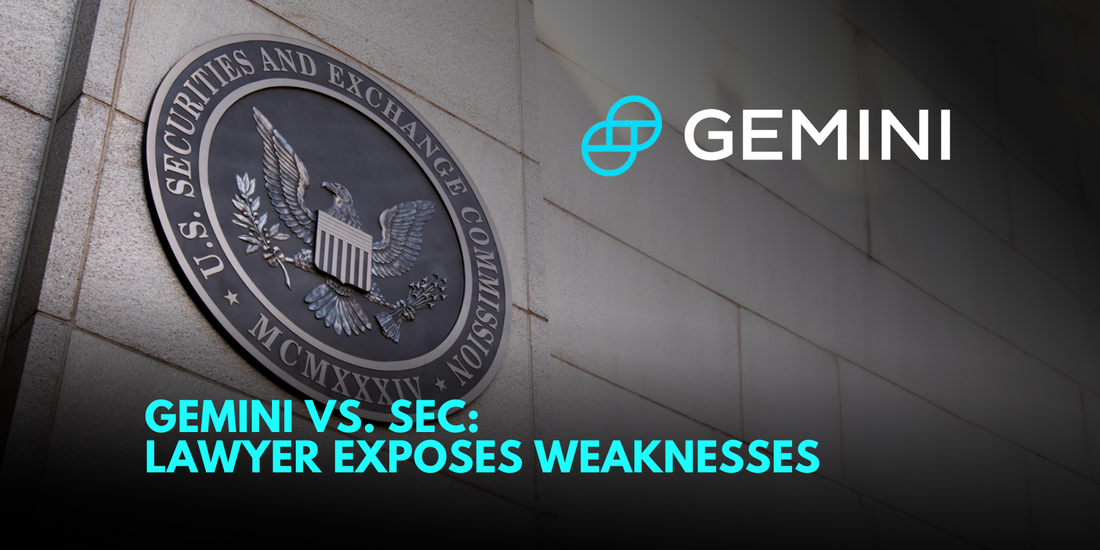
Gemini Fights Back: Lawyer Challenges SEC's Case Fragility
In a recent development, Jack Baughman, the legal representative of cryptocurrency exchange Gemini, has taken a bold stance against the U.S. Securities and Exchange Commission (SEC). On August 19, Baughman voiced his opinion that the SEC is encountering difficulties in substantiating its case against Gemini. The crux of the issue lies in the SEC's assertion that Gemini's crypto lending product, Gemini Earn, violated securities laws by offering unregistered securities.
Baughman's pointed criticism reflects his belief that the SEC is grappling with the very foundation of its argument. He emphasizes the regulator's lack of clarity and consistency, stating, "The SEC is floundering. They can't even decide what the security is." This critique surfaces shortly after Gemini submitted a reply brief aimed at dismissing the SEC's case against the exchange.
Central to the SEC's legal challenge is Gemini's introduction of the Gemini Earn program. This platform enables users to lend digital assets to Genesis under specific conditions outlined in a Loan Agreement. However, the SEC contends that this arrangement involves the illicit sale of unregistered securities—a contention that Gemini vehemently denies.
Baughman's counterargument pivots on the SEC's responsibility to establish two pivotal elements: the existence of a security and the sale of said security. In Baughman's view, the SEC falters on both fronts. A critical point of contention is the SEC's own uncertainty regarding the nature of the alleged security. The regulatory body vacillates between labeling the Loan Agreement itself as a security and designating the entire Gemini Earn program as one. Baughman criticizes the latter assertion as "absurd."
Within the court documents, Gemini challenges the SEC's omission of key details. It questions the lack of clarity on when, where, and to whom the alleged securities were sold, as well as the terms and conditions surrounding the transactions. The exchange asserts that the SEC's silence on these points undermines its argument.
Moreover, Baughman disputes the SEC's interpretation of a "sale" in this context. He asserts that the regulator fails to accurately identify a sale, relying instead on broad claims that Gemini and Genesis "sold" their commitment to pay interest in exchange for crypto assets. Baughman firmly distinguishes between a sale and a loan, rejecting the SEC's contention.
Drawing from his extensive litigation experience spanning over three decades, Baughman highlights the uncommon nature of government entities adopting extreme positions in legal disputes. While judges tend to dismiss unconventional arguments from private entities, government agencies like the SEC often receive more consideration due to their authority in interpreting relevant statutes.
Baughman underscores the importance of regulatory bodies acting impartially, even in litigations against entities they oversee. He expresses concern about a potential shift away from this principle in Washington's regulatory climate, as agencies seem increasingly willing to push boundaries without restraint.
In challenging the SEC's assertions and highlighting inconsistencies, Gemini's lawyer aims to safeguard the integrity of the legal process and ensure that regulatory actions remain balanced and justified.
